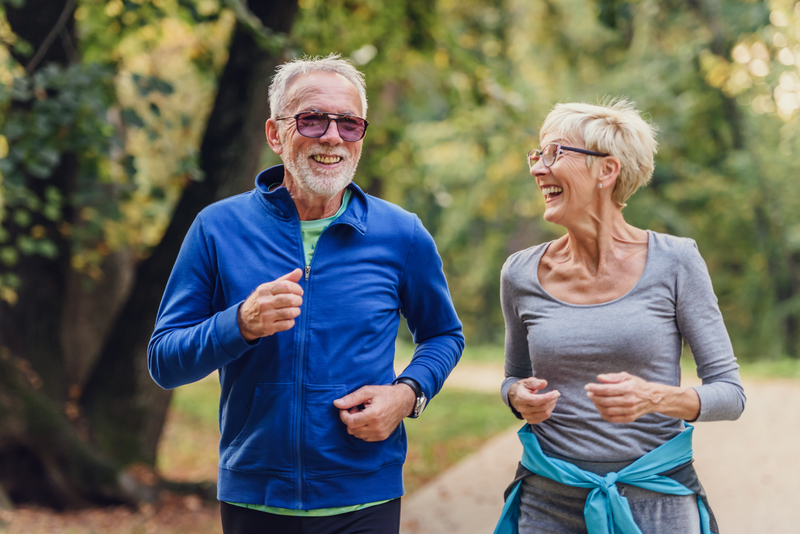The mythical Fountain of Youth allegedly restores the youth of anyone who drinks or bathes in it. Stories of such a fountain have been recounted around the world for thousands of years, appearing in early writings and causing many to search for its powers.
If only such a thing existed.
The Fountain of Youth gained popularity because of the negative connotation associated with aging. When you think of getting older, what comes to mind? Perhaps you worry about pain, injuries or having less energy, or maybe you’ve heard the myth that as you get older, you will have poorer health or less of a feeling of community.
However, studies have debunked these myths and found that older individuals thrive in more aspects of life than what is perceived. In fact, many of these studies found that, as we get older, we can flourish in our friendships, creativity and satisfaction more than younger adults.
What can help us age better? Exercising the right way. Exercise is medicine, and if we do it right we can actually slow down or even reverse some of the effects of aging. It cannot make us literally younger, but it can help combat the following biological changes happening in our body as we age:
- Lowered metabolism
- Loss of muscle mass and bone density
- Increased inflammation
- Lowered reaction time
- Less hormone availability
- Lowered immune response
These changes shouldn’t be viewed negatively, but rather as motivation for us to exercise. Exercise increases our muscle mass, bone density, metabolism, reaction time, immune response and hormones such as testosterone and growth hormone, which are responsible for helping us build muscles and repair tissues. These positive changes decrease inflammation and increase our balance and coordination. Exercise also keeps us healthy longer and decreases our risk of injuries from slips, trips and falls.
The scientific changes associated with aging should not only spark us to exercise regularly, but also to do so the right way. Our bodies naturally need more time to recover and cannot move with the same intensity as our younger selves. This is ok! We do not want to get caught up in thinking we can keep doing the same things we used to do. Instead, we should aim toward finding the middle ground between overdoing it and not doing it at all.
Adjust and adapt are the two most important words for exercising as we age. Many people may struggle with this initially, but learning how to do what works best for your body will lead you to success. Below are suggestions regarding how to best adjust and adapt your exercise routine as you age:
- Increase your warmup and cooldown times (e.g., spend at least 5-10 minutes on each)
- Factor in more rest days
- Listen to your body — if it says not today, then do it tomorrow
- Eat better to combat inflammation and promote recovery; this includes eating a variety of whole, real foods and heavily limiting processed junk foods
- Weight train 2-3 times per week on non-consecutive days
- Rotate between a heavier lifting day and a lighter one
- Do scheduled cardio training 2-3 days per week for at least 25 minutes
- Vary between a light intensity where you can easily talk and a higher intensity where it’s harder to talk
- Stretch at least 10 minutes per day, hitting every area each week: neck, shoulders, wrists, back, hips and ankles
- Move 1-3 minutes every hour every day
- Simple movement is the best thing to prevent arthritis and combat symptoms
These suggestions are general for every exercise routine regardless of age, but their importance becomes much more impactful as we get older. The more variety we have in our exercise routines, the better our joints, body and mind will feel. Choosing the right speed, weight selection and recovery days will help us thrive even more with our physical health, friendships, creativity and satisfaction in life. Exercising well can help us find our Fountain of Youth!
Resources
https://www.researchgate.net/publication/6587681_Myths_and_Realities_of_Aging
https://www.nia.nih.gov/health/10-myths-about-aging
https://www.wsj.com/articles/why-everything-you-think-about-aging-may-be-wrong-1417408057

